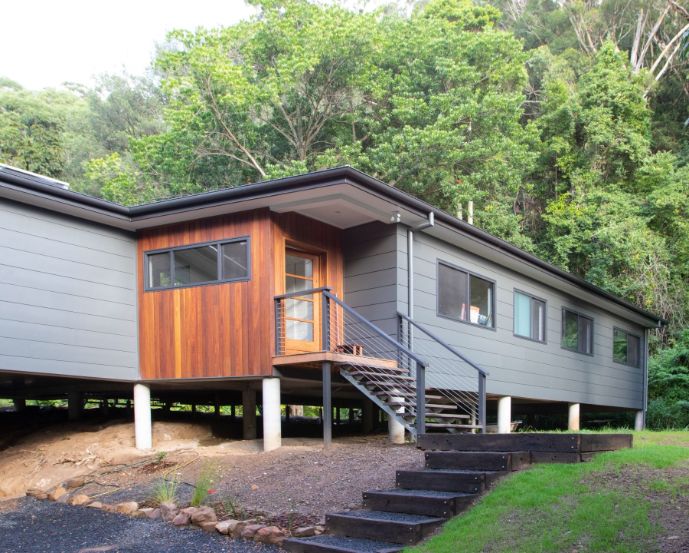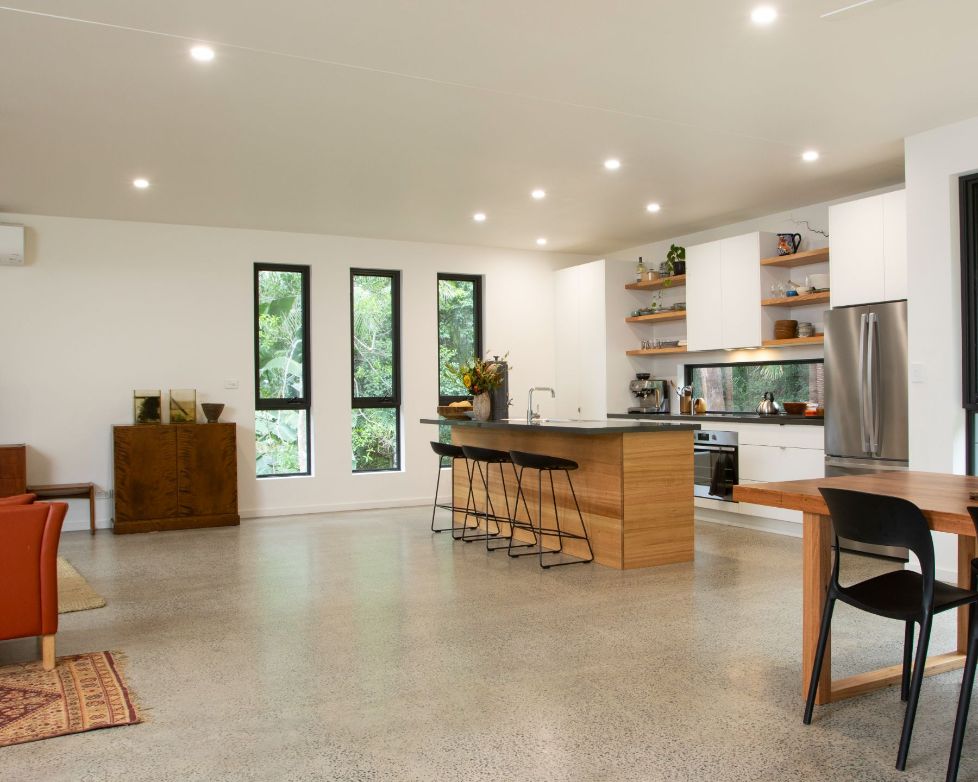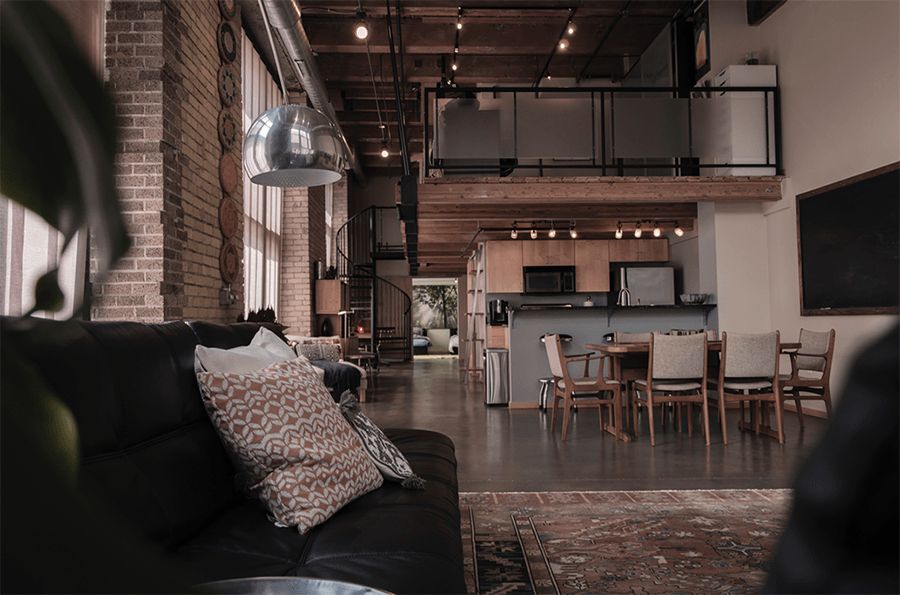
Building a home can be a long process. The design and construction stages are full of variables that can disrupt your timeline and have flow-on effects throughout the rest of your build.
While a project home can usually be completed a little quicker, an average-sized custom-built home takes around 12 months to complete, provided there are few to no delays.
Below, we discuss how long each stage of the build will take, where delays might occur, and how to prevent them.

Generally, a longer timeline means a bigger price tag when it comes to building a new house. So when you're trying to construct your house as quickly as possible so you can move in as soon as possible, it pays to be prepared.
The cost of a new house is largely determined by the size of the building. As well as a bigger budget, a larger home requires more materials, labour and longer timeframes. On average, a new home costs from $1000 to $4000 per square metre, with every square metre adding to the timeframe.
The complexity of your design will also dictate how long it takes to construct. It's normally the case that simple home designs take a shorter amount of time to build.
For example, an off-the-plan project home is likely to be quicker to construct than an architect-designed custom build, especially if your building company has constructed hundreds of these homes before and they are building their materials in bulk. However, variations to plans may also take longer to implement.
As well as seeking approval from your financial institution, you'll need planning approvals and building permits from your local council. This can take a few weeks or months, depending on a number of factors.
Objections from neighbours, heritage and environmental overlays can all take time to overcome. For example, you may need to seek council approval to remove trees, or if your site is under-mined or in a flood-prone area, your council may require geotechnical surveys or extensive engineering plans.
Soil testing is conducted before construction, and normally as a part of the approval process. It helps to determine what type of materials and designs are required for your build and the cost of your foundations.
The footings and slab of your home should work with the expected ground movement. More reactivity means more measures will need to be taken to stabilise your building, therefore adding to the time and cost of your build.
If your block of land isn't flat, it may require levelling and retaining walls to be built. This will also add time to the construction process.
Once the foundations are in place, framing begins. This is where your house really starts to look like a home. However, supply chain issues that have affected the conduction industry in recent years could delay the building process if you haven't planned and prepared for them.
Similarly, the labour shortage affects many trades. It's important to speak to your builder before construction begins as to how these problems will be overcome.
Following framing and roofing, the installation of windows and doors, plasterboard and cladding, your home is ready for services such as plumbing and electrics to be set out. This whole process usually takes about 3 months to complete, provided there are no delays.
However, if custom-made elements or imported materials don't arrive on time, it could have a flow-on effect if your builder isn't able to move on to the next stage of construction.
The finishing touches are then added to your home. Painting, tiling, powerpoints, appliances, lighting, flooring and kitchen and bathroom cabinetry are all finished off. Your landscaping and fences may also go in now.
This stage often feels like the longest but normally takes around 8 weeks.
The weather can affect your build no matter how well you prepare for it, from rain and strong winds and heat waves. Rainy weather can bring a worksite to a complete halt, often delaying jobs such as earthworks, bricklaying and concreting which can not be completed in the rain.
Rain can also impact the delivery of materials and the safety of workers, cause flooding and make worksites inaccessible.
Hot weather can also cause construction delays, with builders and other trades encouraged to stop work once temperatures hit 35 degrees or during times of very high humidity.

With so many variables to consider, planning and effective communication are key when it comes to avoiding delays during construction.
Making decisions about what you want for your home before construction begins will save you time and money. Your timeframe can be negatively impacted by even a small change of mind once the building process has begun due to having to order a new product, or reschedule or find the right tradespeople.
A good builder will provide you with an outline of when each stage of the build is expected to be completed and be available to answer any questions you may have before and during construction. Asking your builder to provide you with regular progress reports can also help with open communication and allow you to raise any issues of concern.
Having some components of your build constructed off-site can help you complete a project more efficiently. These might include things such as panel systems to create walls or stairs. Because they are manufactured and assembled in a factory, they can be more environmentally friendly and cost-effective.
A reputable builder will have processes in place to ensure everything is done according to a timeline for each of the stages of building. This will help ensure there are only minimal delays should something unexpected happen. This type of organisation often comes with plenty of experience and local knowledge.
Another way to cut down on your construction time is to choose a custom home builder with streamlined systems and a team of experienced contractors. Their local industry connections will also help them source the right materials and keep your new home on track.
With more than 45 years combined building experience in the Illawarra and Wollongong region, A Class Building and Construction are perfectly positioned to help you create a unique custom home. They are also committed to providing superior customer service in a constantly changing industry. Contact them to find out more about building a custom-designed home in the Illawarra and Wollongong region.